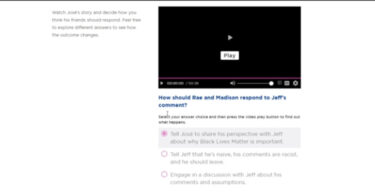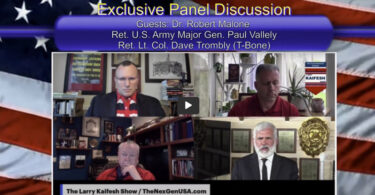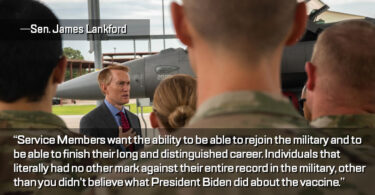By Gen. Ronald R. Fogleman (USAFA graduate, former Air Force Chief of Staff) and Claude M. (Scott) McQuarrie III (West Point graduate, former infantry officer, lawyer)
The Supreme Court will soon consider Students for Fair Admissions v. Harvard/UNC.
The court’s decision will determine whether our military’s future leadership will consist of the “best-qualified” individuals instead of simply those “qualified” as defined by an ever-moving standard meant to accommodate political and cultural goals.
Affirmative action, in the form of racial preferences, pervades today’s military despite federal law that, if enforced, would prevent it.
Section 601 of the Civil Rights Act of 1964 prohibits racial “discrimination under any program or activity receiving Federal financial assistance.”
Racial preferences in the military also violate our Constitution’s Fifth Amendment Due Process Clause.
Department of Defense (DOD) surrogates speciously have argued to the Supreme Court that the DOD’s use of racial preferences in service academy admissions is “mission critical” and “indispensable to” national security.
That strategy was contrived only because of the legal framework courts must use when examining practices that violate the Constitution. Evidence must clearly prove a “compelling state interest” sufficiently strong to justify the drastic measure of suspending the constitutional provision that prohibits such practices.
DOD’s surrogates made their preferences-are-essential-to-national-security argument first in 2003 in Grutter v. Bollinger.
Unrebutted, that far-fetched claim misled the Grutter majority into a falsely predicated, 5-4 decision authorizing the limited, narrowly tailored use of racial preferences in college admissions for the sole purpose of gaining the “educational benefits of diversity.” The DOD thereby gained some of the judicial cover it sought for its racial preferences practices in service academy admissions.
Veterans for Fairness and Merit (VFM), an organization that has 627 members, 21 Medal of Honor recipients, 45 POWs, 119 general officers (12 four-stars and 25 three-stars), with 934 combat tours, 476 combat leader positions held, and more than 900 combat valor awards to its name, filed an amicus brief in Harvard/UNC to correct the record based on their first-hand experiences.
Our military most assuredly can defend America without resorting to extra-constitutional practices that require suspension of the Equal Protection Clause and Section 601. To claim otherwise is disingenuous.
Officer-enlisted racial demographic parity – if that’s what DOD surrogates’ term “critical officer diversity” means – is unnecessary for our military to be combat-effective.
Our warfighters respond to their leaders regardless of race. Sub-group identities are inconsequential to the selfless servant, “colorblind” warrior.
Mission accomplishment, however, requires the best-qualified leaders.
DOD’s race preference practices far exceed the limited use Grutter envisioned.
At West Point, to fulfill “class composition goals,” marginally qualified applicants are admitted, displacing better-qualified Asian and White applicants. Substantial differences in attrition/graduation rates and performance measures predictably result. Because of this, our warfighters are denied the “best-qualified” officers.
DOD’s brazen use of preferences to pursue parity is “racial balancing,” a practice the court has repeatedly held “patently unconstitutional,” regardless of the “diversity” label.
Like VFM (which condemns all forms of racism), a substantial majority of Americans oppose the use of racial preferences in college admissions. Pew Research found that 74 percent of Americans, including 59 percent of blacks, polled in March 2022 agree that race should not be used in college admissions.
DOD further dilutes quality by using racial preferences in some assignment and promotion activities. DOD denials notwithstanding, these practices weaken merit and, over time, reduce leader quality, erode morale, undermine unit cohesion, and compromise combat effectiveness.
Preferences also demean high-performing minorities, whose self-esteem demands confidence that the recognition they receive is earned, not bestowed in pursuit of social justice.
In an affirmative action environment, they are also deprived of the presumption of competence that should accompany selection: Their peers and subordinates don’t know whether a promotion was earned or the result of preferences.
Unity in our pluralistic society has been our strength. What unites us, most fundamentally, is our Constitution, the “rule book” that citizens and officers alike agree to follow.
Losing that focus, and eroding military leader quality, would invite our potential adversaries to calculate that we can be defeated, increasing the risk of being drawn into conflict. We do so at great peril.
Warfighters deserve the best-qualified leaders available, regardless of race, always. Providing them is a moral and national security imperative.
DOD’s disingenuous claim that racial preferences are essential to national security and its costly failures always to choose “best qualified” leaders violate the American people’s trust.
We can do better. Following the Constitution and Section 601’s plain wording would be the right place to start.
Gen. Ronald R. Fogleman, USAF, ret., is a former Air Force Chief of Staff, Air Force Academy graduate, and member of Veterans for Fairness and Merit. Claude M. McQuarrie III is President of Veterans for Fairness and Merit, a West Point graduate, former Infantry officer, and attorney.








Leave a Comment